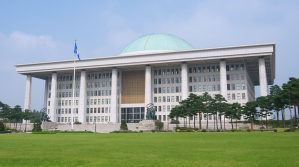
A new legislative proposal in South Korea aimed at amending the Act on Promotion of Information and Communications Network Utilization and Information Protection has drawn criticism from Christian leaders and legal experts, who say it resembles the previously proposed Equality Act and may function as a “backdoor” version of it.
The bill was recently introduced by Rep. Cho In-cheol and 10 other lawmakers from the Democratic Party of Korea, along with one member from the Rebuilding Korea Party. It seeks to define discrimination and hate speech based on sexual orientation and other categories as “illegal information” online and to establish a reporting and enforcement system to manage such content.
Rep. Cho, the bill’s primary sponsor, explained the rationale behind the amendment: “Hate speech that incites discrimination and violence against certain groups or individuals through online networks has been increasing, exacerbating social conflict. Yet under current law, there is insufficient legal basis to directly regulate such speech, making it difficult to respond effectively.”
Article 44-7, Paragraph 1 of the current law states, “No one shall distribute any of the following information through the information and communications network.” The newly added subparagraph 2-2 proposes that “information that justifies, encourages, or strengthens discrimination or promotes or incites violence against a specific group or its members based on race, nationality, ethnicity, region, age, disability, gender, sexual orientation, religion, occupation, illness, etc.” be classified as illegal.
Additionally, a newly introduced subparagraph 6 calls for the creation of a deliberation committee to receive reports and investigate individuals who distribute such content online.
Critics warn that if the bill passes, the Korea Communications Commission (KCC) could, under Paragraph 2 of Article 44-7, order internet platforms to delete or restrict posts or content involving sexual orientation or other protected categories, based on the deliberation committee’s recommendations.
Furthermore, under Article 73 of the current law, those who fail to comply with such corrective orders from the KCC could face up to two years in prison or a fine of up to 20 million won (approximately $15,000 USD). The presence of these punitive measures has led to comparisons with the previously proposed Equality Act during the 21st National Assembly.
Attorney Cho Young-gil of INS Law Firm stated, “Because this amendment includes provisions prohibiting discrimination based on sexual orientation, even online content opposing homosexuality or gender transition could be classified as hate speech and restricted.”
He added, “Such content could be regulated following a review by the KCC, and failure to comply with its corrective orders could lead to criminal penalties.”
Cho also warned that civil lawsuits could be filed even before a corrective order is issued, calling the bill “a de facto version of the Equality Act.”
A leader from the Christian community echoed these concerns, saying, “The core provisions of the comprehensive Equality Act or Anti-Discrimination Law, which the Korean church has fought to block at all costs, have essentially been copy-pasted into this bill. The Democratic Party had previously said it wouldn’t push the Equality Act prematurely, but that promise now seems disingenuous.”
Originally published by Christian Daily Korea, translated and edited by Christian Daily International.






